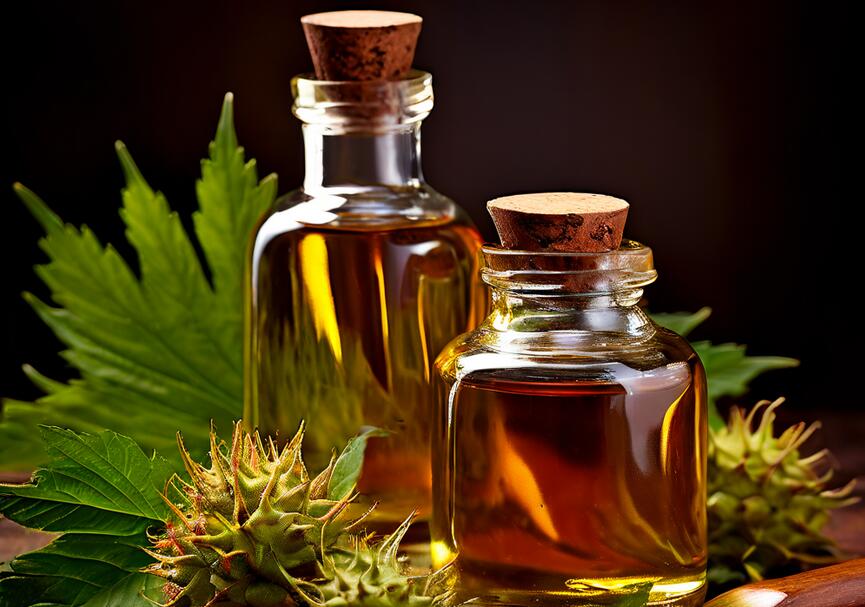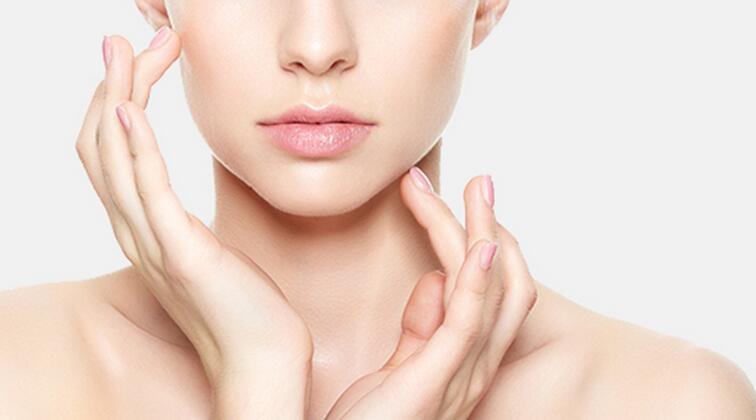Is castor oil good for the skin? Castor oil is a versatile and widely used natural oil that offers numerous health benefits, particularly for the skin. From moisturizing the skin to treating various skin conditions, castor oil has gained popularity as a beneficial ingredient in skincare routines. In this article, we will explore 16 health benefits of castor oil for the skin.
What is Castor Oil?
Castor oil is a vegetable oil that is extracted from the seeds of the castor oil plant, scientifically known as Ricinus communis. It is a thick, pale yellow, or colorless liquid with a distinct odor. Castor oil has been used for centuries for various purposes. This includes medicinal, industrial, and cosmetic applications.
Medicinally, castor oil is known for its laxative properties. It contains a high concentration of ricinoleic acid, which stimulates the intestines and promotes bowel movements. Due to its laxative effects, castor oil is commonly used to relieve constipation.
Apart from its use as a laxative, castor oil is also known for its potential anti-inflammatory, antimicrobial, and moisturizing properties. It is often used in cosmetic products, such as soaps, lotions, and hair care products, due to its ability to nourish and moisturize the skin and hair.

Is Castor Oil Good for Your Skin:16 Health Benefits
1. Deep Moisturization
One of the most notable benefits of castor oil is its ability to deeply moisturize and nourish dry skin. The high fatty acid content, particularly ricinoleic acid, acts as a natural occlusive, locking in moisture and preventing water loss.
This leaves your skin feeling soft, supple and well-hydrated. Castor oil’s moisturizing properties can be especially beneficial for those with dry, flaky, or dehydrated skin. In addition, Castor oil’s unique composition allows it to penetrate deep into the skin, providing long-lasting hydration.
2. Anti-Aging Properties
Castor oil contains antioxidants that help fight free radicals in your body. These antioxidants, such as vitamin E, can help protect your skin from oxidative stress and environmental damage. By incorporating castor oil into your skincare routine, you can help reduce the appearance of fine lines, wrinkles, and age spots.
The fatty acids in castor oil, particularly omega-6 and omega-9, also contribute to its anti-aging properties. Additionally, castor oil’s ability to promote collagen production further enhances its anti-aging benefits.
3. Acne Treatment
The ricinoleic acid in castor oil possesses anti-inflammatory and antimicrobial properties. By applying castor oil to affected areas, you can help calm inflamed pimples and prevent future breakouts. Additionally, castor oil’s ability to balance the skin’s natural oil production may prevent clogged pores and excess sebum.
In addition, Castor oil’s low comedogenic rating also makes it an excellent choice for acne-prone skin. When used consistently, castor oil can help improve the overall appearance and health of acne-prone skin, reducing redness, and inflammation.
4. Skin Texture Improvement
Regular use of castor oil can lead to noticeable improvements in your skin’s texture, tone, and overall appearance. The fatty acids in castor oil promote the growth of healthy skin tissue. Castor oil can also help reduce the appearance of scars, stretch marks, and other skin imperfections.
In addition, The moisturizing and nourishing properties of castor oil also contribute to improved skin texture. By keeping the skin well-hydrated and supplying it with essential nutrients, castor oil can help prevent rough, dry patches.
5. Reduces Inflammation
Castor oil’s anti-inflammatory properties can help reduce swelling, puffiness, and redness in the skin. The ricinoleic acid in castor oil can inhibit the production of pro-inflammatory compounds.
This makes it an effective natural remedy for various skin inflammations. In addition, castor oil can help improve the overall health and appearance of your skin. This helps promote a clearer, more balanced complexion.
6. Promotes Skin Healing
The fatty acids in castor oil, particularly ricinoleic acid, can promote wound healing and tissue repair. By applying castor oil to minor cuts, scrapes, or other skin irritations, you can help speed up the healing process and reduce the risk of scarring.
In addition, Castor oil’s moisturizing and anti-inflammatory properties also contribute to its healing abilities. Whether you’re dealing with a minor burn, insect bite, or other skin injury, applying castor oil can help soothe the affected area and promote faster recovery.
7. Treats Dry Lips
If you suffer from dry, chapped lips, castor oil can be a game-changer. Its moisturizing properties can help soothe and hydrate your lips, leaving them soft and smooth. Simply apply a small amount of castor oil to your lips before bed or throughout the day as needed. You can also create a DIY lip balm by mixing castor oil with other nourishing ingredients.
In addition, Castor oil’s occlusive properties help lock in moisture, preventing drying and cracking. Its fatty acid content also helps nourish and protect the delicate skin on your lips, promoting a healthier, more supple appearance.

8. Strengthens Skin Barrier
Castor oil can help repair and strengthen your skin’s natural barrier function. By forming a protective layer on the surface of your skin, castor oil helps prevent moisture loss and defends. A strong skin barrier is essential for maintaining healthy, resilient skin that can better withstand damage and irritation.
The fatty acids in castor oil, particularly ricinoleic acid, help support the skin’s natural lipid barrier, which is responsible for keeping moisture in and irritants out. By reinforcing this barrier, castor oil can help improve your skin’s overall health and resilience.
9. Reduces Pigmentation
The antioxidants and fatty acids in castor oil may help reduce the appearance of dark spots, melasma, and other forms of hyperpigmentation. These compounds can help inhibit the production of excess melanin, the pigment responsible for skin discoloration. With consistent use, castor oil can help even out your skin tone and promote a brighter, more radiant complexion.
Castor oil’s ability to promote skin cell turnover also contributes to its pigmentation-reducing properties. By encouraging the growth of new, healthy skin cells, castor oil can help fade existing dark spots and prevent the formation of new ones.
10. Soothes Sunburn
Due to its anti-inflammatory and moisturizing properties, castor oil can help heal sunburned skin. The fatty acids in castor oil can help repair damaged skin cells and prevent further moisture loss.
When using castor oil to treat sunburn, it’s essential to apply it gently and avoid further irritating the skin. Mix castor oil with a soothing carrier oil, such as coconut or aloe vera. Then apply the mixture to the sunburned areas using light, gentle strokes.
11. Promotes Collagen Production
Castor oil has been shown to boost collagen production in the skin. This is essential for maintaining skin elasticity and firmness. By stimulating collagen synthesis, castor oil can help reduce the appearance of fine lines and wrinkles.
The antioxidants in castor oil, such as vitamin E, also help protect existing collagen from damage caused by free radicals and environmental stressors. In addition, castor oil can help keep your skin looking firm, plump, and youthful.

12. Detoxifies the Skin
Castor oil’s medicinal and detoxifying properties can help prevent the accumulation of toxins in your skin. By promoting better circulation and lymphatic drainage, castor oil can help flush out impurities. This detoxifying effect can be particularly beneficial for those with congested or acne-prone skin.
In addition, Castor oil’s ability to penetrate deep into the skin also allows it to draw out impurities from within the pores. Regular use of castor oil can help keep your skin clean, clear, and free from toxin buildup.
13. Treats Skin Conditions
Castor oil’s anti-inflammatory and antimicrobial properties make it a potential treatment for various skin conditions, such as eczema, psoriasis, and dermatitis. Its moisturizing properties can also help alleviate dryness and flakiness associated with these skin conditions.
When using castor oil to treat skin conditions, it’s essential to consult with your doctor first. Because some conditions may require specific medical attention.
14. Suitable for Sensitive Skin
Castor oil has a low comedogenic rating, meaning it is unlikely to clog pores and cause breakouts. This makes it an excellent choice for those with sensitive skin who may be prone to irritation or allergic reactions. Castor oil’s gentle, nourishing properties can help soothe and protect sensitive skin.
When introducing castor oil to sensitive skin, it’s crucial to perform a patch test first to ensure compatibility. Apply a small amount of castor oil to a discrete area of skin and wait 24 hours to observe any adverse reactions. If no irritation occurs, you can proceed with using castor oil on larger areas of your face and body.

15. Enhances Skin Glow
By promoting healthy, well-hydrated skin, castor oil can give you a radiant, luminous complexion that looks and feels its best. Regular use of castor oil can help improve skin texture, even out skin tone, and boost overall skin health. This results in a noticeable glow.
Castor oil’s ability to promote circulation and detoxification also contributes to its glow-enhancing properties. By improving blood flow to the skin and removing impurities, castor oil can help give your complexion a fresh, healthy appearance.
16. Affordable and Accessible
One of the greatest advantages of castor oil is its affordability and accessibility. Unlike many expensive skincare products on the market, castor oil is relatively inexpensive and can be easily found at most health food stores. This makes it an excellent option for those looking to improve their skin health without breaking the bank.
Castor oil’s versatility also makes it a cost-effective choice for skincare. With its wide range of benefits and uses, castor oil can effectively replace multiple products in your skincare routine.
How to Use Castor Oil for Skin?
To reap the benefits of castor oil for your skin, it’s essential to use it correctly. Here are a few tips to keep in mind:
- Always perform a patch test before applying castor oil to your face to ensure you don’t have any adverse reactions. Apply a small amount of castor oil to a small area of skin, such as your inner forearm. Then wait 24 hours to see if any irritation or allergic reactions occur.
- Mix castor oil with a carrier oil, such as coconut, almond, or olive oil, to thin out its thick consistency and make it easier to apply. A good ratio to start with is 1 part castor oil to 3 parts carrier oil.
- Apply the castor oil mixture to your face before bed, after cleansing your skin. You can leave it on overnight or wipe it off with a warm cloth after one to five minutes. If you have oily or acne-prone skin, it’s best to start with shorter application times and gradually increase as your skin adjusts.
- Be consistent with your castor oil skincare routine to see the best results. Regular use over time can lead to significant improvements in your skin’s health and appearance. Aim to use castor oil on your skin at least 2-3 times per week for optimal benefits.
In addition to facial application, castor oil can be used on other areas of the body to target specific skin concerns. For example, applying castor oil to stretch marks or scars can help fade their appearance over time. You can also use castor oil as a full-body moisturizer, especially for dry, rough patches on the elbows, knees, and feet.
Potential Side Effects and Precautions
While castor oil is generally considered safe for topical use, there are a few potential side effects and precautions to keep in mind:
- Some people may experience skin irritation or allergic reactions to castor oil. If you notice any redness, itching, or swelling after applying castor oil, discontinue use immediately and consult with your doctor if symptoms persist.
- Castor oil may irritate the eyes, so be careful when applying it near the eye area. If castor oil gets into your eyes, rinse thoroughly with water and seek medical attention if irritation persists.
- If you have a pre-existing skin condition, such as dermatitis, consult with your doctor before using castor oil on your skin. While castor oil may help alleviate symptoms for some, it could potentially exacerbate the condition in others.
- Castor oil should not be ingested, as it can cause severe gastrointestinal distress and other adverse effects. Keep castor oil out of reach of children and pets to prevent accidental ingestion.
It’s also important to note that while castor oil can provide numerous benefits for the skin, it should not be relied upon as a sole treatment for serious skin conditions. If you have persistent or severe skin concerns, it’s always best to consult with a dermatologist.
Conclusion
Castor oil is a powerful, natural ingredient that can offer numerous benefits for your skin. From deep moisturization and anti-aging properties to acne treatment, castor oil is a versatile and affordable solution for many common skin concerns. By incorporating castor oil into your skincare routine, you can help promote healthier, more radiant skin.






